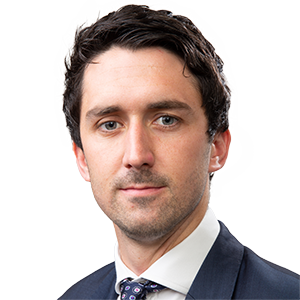
Group Litigation Orders in sport: Combining efforts in the pursuit of concussion compensation
Co-authored by Rebecca Bell, Trainee Solicitor
In late 2023, the High Court heard an application for a Group Litigation Order (GLO) involving claims being brought against World Rugby Limited, Welsh Rugby Union Limited and Rugby Football Union (the Application). The claims are in respect of permanent long-term illness and injury, which is alleged to have resulted from repeated concussive and sub-concussive injuries incurred by the athletes involved during their time training and playing in matches.
What is a GLO?
GLOs are most commonly utilised in bringing industrial disease claims, where large numbers of claimants have been impacted, but the scale of individual loss makes an individual action uneconomic. The goal of a GLO is therefore to balance the individual rights of claimants and defendants with the need to manage cases effectively and economically. A GLO is defined in CPR 19.21 as “an order made under CPR 19.22 to provide for the case management of claims which give rise to common or related issues of fact or law (the GLO Issues)”. The CPR provisions on GLOs are relatively high level, enabling the Court to adapt its approach to the practical and legal characteristics of each GLO case, which can vary considerably. Most GLOs brought before courts in England and Wales are “opt-in”, meaning claimants must actively decide to participate in the litigation. This contrasts with the “opt-out” procedure of US class actions, where all members of the specified class of litigants are part of the claim by default unless they actively choose not to be.
Whilst there is not an exact number of claimants required for a GLO to be ordered, the Court of Appeal confirmed in Austin and others v Miller Argent (South Wales) Ltd [2011] that “far more than two claimants are necessary”. Despite there being no obligation for all claims subject to the requested GLO to have been issued at the time of the application, the Court must be satisfied that there will be a sufficient number of claimants to justify making such an order. The GLO Issues must be carefully and precisely defined, as a judgment or order arising from a GLO is binding on all parties (unless the Court specifies otherwise).
The Application
The Application brings together, at present, four claim forms issued by approximately 295 players, all of whom allege that they have suffered from neurological injury as a result of playing rugby. The claimants maintain that the sport's governing bodies were negligent in their failure to fully inform players of the risks of repeated concussive and sub-concussive injuries, or to adequately protect them from such harm. The Application treats the instances of dementia amongst the claimants as an industrial disease, drawing analogies with claims such as those brought against negligent employers on the grounds of their employees’ asbestosis or mesothelioma.
The aim of the Application is stated to be twofold: firstly, to achieve compensation for those impacted by neurological disorders, and secondly, to raise the public awareness of the implications of concussive injuries in sport, thereby encouraging regulatory change. Whilst sporting governing bodies have made changes to rules and regulations concerning concussions sustained during both training and matches, including the significant Head Injury Assessment protocol published by World Rugby in 2015, further action continues to be pushed for by players and associated professionals alike.
Next steps
Despite the increase in group action litigation in recent years, relatively few GLOs have been registered (a list of GLOs is published here: List of group litigation orders - GOV.UK (www.gov.uk)). Instead, parties have often proceeded using the courts’ flexible case management powers. At the case management hearing held on 1 December 2023, the Court decided that it would be “premature” to order a GLO at this stage of the Application, citing the need for more time to allow all parties to consider how such an order should operate.
Nevertheless, the publication of the names of some of the 295 athletes involved (including former England Rugby World Cup winners Steve Thompson and Phil Vickery, former Wales centre Gavin Henson and former All Blacks forward Carl Hayman) demonstrates the high-profile nature of these proceedings, which will be revisited at the next hearing in the spring of 2024. The potential implications of such a GLO being granted could be significant, particularly in relation to regulation and how both sports will be played in the future, and our sports law team will be following the Application as it progresses in 2024.



